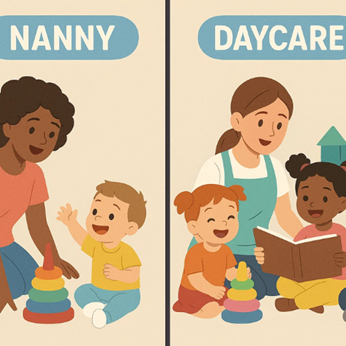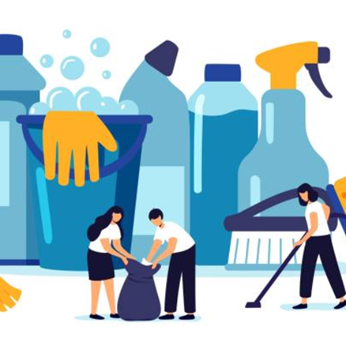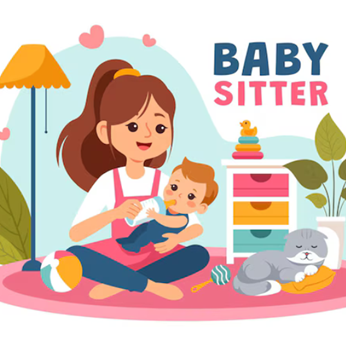10 Top Manners Your Pre-school Child Should Know
The other day I saw a teenager behave very oddly in public; everyone blamed his parents for the way he was brought up. Truly most kids are developmentally ready and eager to learn how to engage appropriately in public at a very young age, so parents need to teach them some important manners.
10 top manners your pre-school child should know:
1. Your pre-school child should know that they should ask before taking something that belongs to someone else even of parents; children should be taught how to ask before taking.
2. There is nothing more disgusting than having spittle flying from little noses and mouths; even young children need to be taught to cover their mouths when they sneeze or cough.
3. The words, “please” and “thank you” are magical words; teaching children how to use these words when young at home itself would make these courtesies a habit for a lifetime.
4. There is no humility better than teaching a child how to say “I am sorry”; it should be said from the heart and not to just please an angry parent or teacher. It has been well-said that empathy is a definite life skill.
5. Even pre-school children need to be taught not to make fun of other people; parents need to teach them that pointing out flaws and making fun of others would hurt others feelings unnecessarily, and create a bad impression of them.
6. Even young children need to be taught to knock at the door before entering; teaching them this important attribute would make them realize that they should respect the privacy of others.
7. One important habit that parents need to teach pre-school children is to sit quietly when necessary; it is rude to talk through the entire movie and to wiggle and giggle in less interesting situations. They need to be made to understand that patience is definitely a virtue.
8. Even pre-school children need to be taught how to patient and say, “Excuse me!” even young children need to taught that they cannot interrupt people and have to gently ask to be excused.

9. Table manners need to be taught to children at a young age; children need to be taught the right way to use the cutlery and not talk with their mouths full. Practice of these habits at home will make it a habit even in public.
10. Lastly children need to be taught how to be helpful and compassionate at an early age; they could offer to hold the door for someone’s whose hands are full or offer help to teachers and parents in chores. Learning ways to be helpful and compassionate would not only make them enjoy a high self-esteem, but others would also like them.
Image Courtesy: Google
Take the next step toward your goals
Share your requirement and find the best care providers in your area
-
Looking for a caretaker’s job? Build your profile and get in touch with families in your vicinity.
-
Discover nannies, babysitters, cooks, housekeepers, pet sitters, and elder care under one roof.
-
Get all the support you need to run a successful care center.
-
Search for appropriate centers near you depending on your needs.
Care Corner Insights: Blog Library

Nanny vs. Daycare in Naperville, IL: What Works Best for Indian Working Couples?
Hey Naperville Parents! Balancing work and family life is no small feat—especially for Indian working couples trying to juggle careers, household responsibilities, and parenting. One of the biggest decisions you’ll face? Choosing between a nanny or

Housekeepers in Sugar Land, TX: Deep-Cleaning Checklists for Indian Homes
Housekeepers in Sugar Land, TX: Deep-Cleaning Checklists for Indian Homes Indian cooking = flavor + spices + love… but also oil splatters and stubborn stains. Time to reset! Degrease stovetops, chimneys, and exhaust fans. Scrub countertops, tiles,

12 Easy After-School Snack Ideas for Kids Who Get Hungry Quickly
School’s out, and the hunger hits hard! If your little ones come home ravenous and ready to raid the kitchen, you’re not alone. After-school snack time is prime time for refueling, recharging, and maybe even sneaking in a little nutrition. So here ar

Vegetarian Home Cook Services in Sunnyvale, CA: North & South Indian Meal Prep for Busy NRIs
Between work, family, and daily responsibilities, finding time to cook fresh meals can be difficult. That’s when a vegetarian home cook service in Sunnyvale makes life easier—bringing authentic North and South Indian dishes straight to your table. T

Hiring a Live-In Nanny in Plano, TX: A Practical Guide for NRI Households
For NRI families living in Plano, TX, raising children while managing work and household responsibilities can feel overwhelming. Many parents find that hiring a live-in nanny provides the right balance of support, convenience, and cultural comfort. U

Daycares in Fremont, CA for Indian Toddlers: Curriculum, Food Policies & Waitlists
You’ve probably met them — the parents at the park chatting about Montessori vs. play-based learning while handing their toddler a homemade paratha. The ones who ask every daycare in Fremont if they serve vegetarian meals. And yes, the ones who have

Babysitters in Jersey City, NJ for NRI Parents: Last-Minute, Weekend & Evening Options
You’ve probably seen them — the parents juggling grocery bags in one hand and a phone call to grandma in India in the other, while trying to keep their toddler from running into the road. The ones who cancel dinner plans because the babysitter bailed

Best Nanny Services in Edison, NJ for Indian Families: Costs, Language, and Cultural Fit
Edison, NJ, is home to one of the largest Indian communities in the U.S., and finding a nanny here often means looking for more than just childcare skills. For Indian families, cultural understanding, language fluency, and traditional values play a b

What Is Helicopter Parenting? How It Affects Children and Ways to Avoid It
You’ve probably seen them. The parents at the playground who shadow every move, wiping invisible germs off the slide before their child touches it. The ones who fill out job applications for their teens. And yes, the ones who email college professors

Are Weighted Blankets Safe for Children? Pros and Cons Explained
Weighted blankets have become a cozy trend in recent years. From helping adults sleep better to calming anxiety, they’ve earned a spot in many households. But when it comes to kids, especially the little ones, parents often ask: Are weighted blankets